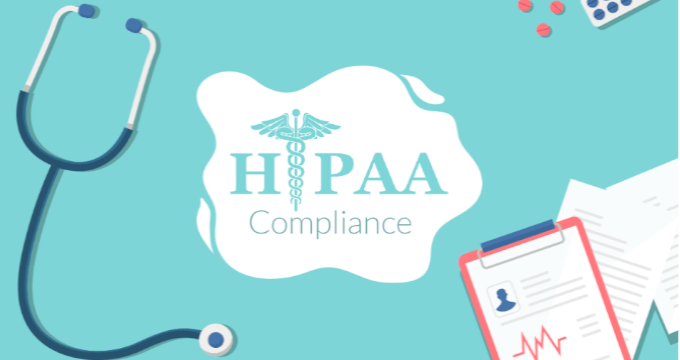Because of its critical impact on our wellbeing, healthcare is a highly regulated industry. In a bid to safeguard patients’ data, the governments in the US and Europe have adopted data protection regulations (HIPAA and GDPR respectively). In this article, we will talk about the HIPAA compliance demands in IT and the steps that the healthcare companies should take to meet HIPAA requirements.
What is HIPAA?
To explain HIPAA, we should uncover the meaning of one more term related to healthcare security. PII stands for Personal Identifiable Information and refers to healthcare and healthcare insurance data that can be attributed to physical individuals and become a subject of theft and fraud.
HIPAA is an acronym for the Health Insurance Portability and Accountability Act. The act was passed under Bill Clinton’s administration in 1996 in order to:
– Modernize the flow of healthcare information;
– Ensure PII protection;
– Address healthcare insurance issues.
The HIPAA law has undergone a number of modifications after its adoption. Today, HIPAA is controlled by the U.S. Department of Health & Human Services’ Office for Civil Rights (OCR). State Attorneys General can also take action against Covered Entities and Business Associates that fail to comply with HIPAA. Both OCR and State Attorneys General have the authority to impose financial penalties for violations of the HIPAA law.
What Data Does HIPAA Protect?
Any healthcare data that can serve as personal identifiers, also known as Protected Health Information (PHI or ePHI) is a subject of HIPAA. Below are some examples of such data:
– Names or parts of names
– Social security details
– Geographic details
– Health insurance beneficiary numbers
– Medical record numbers
– Details of email addresses
– Vehicle license plate details
– Photographic images
– Fingerprints
– IP addresses, etc.
HIPAA doesn’t specify which tools should be used to protect patients’ data, nor does it favor any security-protection technology over another. It leaves up to companies to assess the security risks and choose the protection measures that seem the most appropriate.
HIPAA and IT Security
The HIPAA Security Rule regulates the security of digital systems in order to safeguard and protect electronic Personal Health Information (ePHI). This rule sets the standards for generating and receiving, utilizing, and storing patients’ data. All in all, healthcare organizations and their business associates are required to implement three types of security controls: technical, administrative, and physical. Let’s now explore these controls in more detail.
Physical controls
Organizations are required to set up clear data access policies. On a physical level, HIPAA designates restricting access to buildings and parking lots. There should be no sign indicating the location of a datacenter on the company’s premises. A security guard should meet visitors at the entryway and request a photo ID. On top of that, organizations should set up a procedure of signing in and out of the facility.
The equally strict access rules should apply inside of the data center building: biometric access, access tracking by security cameras and handwritten logs, plus, the physical integrity of doors, locks, and cabinets is also mandatory.
Administrative controls
Healthcare companies should implement administrative measures to set up and maintain the optimal level of data security. The controls and policies pertaining to IT security should regulate firewalls, password management systems, antimalware solutions, data classification systems, encryption mechanisms, etc.
On top of that, organizations should have an actionable response plan ready, in case a security event takes place. Healthcare organizations should also develop and maintain risk management and mitigation plans and be prepared for emergencies.
IT controls
HIPAA places very specific demands on the healthcare organization’s IT infrastructure: apart from the physical security and integrity of all the cables and sockets, HIPAA requires distinct server roles, strict access control to all the PHI, and the availability of firewalls between public and private server environments.
Organizations should also ensure top-notch network security by implementing strong intrusion prevention strategies and enterprise-grade anti malware solutions.
HIPAA regulations are flexible and can be adapted to any specific situation. The law implies that organizations should keep abreast of the latest technology trends and implement the best practices to safeguard sensitive data.
On top of that, HIPAA law stresses the importance of educating clinic and administrative personnel on the specifics of data security. Specific rules also apply to cloud infrastructures used by healthcare organizations and to the organizations’ Business Associates, including software vendors.
The takeaway:
These rules have a number of logical implications. The recent COVID-19 outbreak, for example, has created an immense demand for telehealth solutions, but clinics and private professionals can’t use conventional video conferencing software for remote consultations. The software they use has to comply with HIPAA security standards since video data falls into the PHI category.
The same rule applies to lab management systems and clinic management suites. The data collected by medical devices and wearables should also be stored and processed according to HIPAA.
Likewise, free software apps for data encryption are not suitable for working with healthcare data. According to HIPAA, data transfer should take place according to electronic data interchange (EDI) standards using an X12N EDI
protocol standard for data transmission. Hence, organizations should only be using the software that complies with HIPAA requirements. Data encryption systems like VARTEQ Data Dazzler ensure 100% compliance with HIPAA standards and can be used by healthcare organizations.
With our vast expertise in building solutions for healthcare, here at VARTEQ we are dedicated to safeguarding patients’ data and helping customers set up and maintain high-security standards.
Read also: Meeting the Data Security Challenge in Healthcare
Looking for a healthcare solutions provider that has all it takes to meet the data security challenge? Contact us now for a free consultation!

